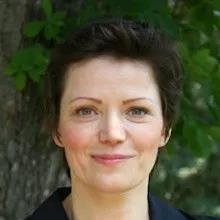“有关战争与干预的跨国公共辩论——解决问题和欧洲认同形成”

2019年6月3日 星期一
13:30-15:05
同济大学四平校区中德大楼
1012会议室
活动介绍
报告人:Cathleen Kantner教授(德国斯图加特大学社会科学研究所)
语言:英语
主办:同济大学德国研究中心
讲座摘要:冷战后,针对种族和宗教团体的国内暴力、残酷的内战和不对称冲突出乎意料地不断加剧。这些危机对欧盟及其成员国提出了根本性问题,欧洲迄今仍无法找到令人满意的答案。冷战后,关于战争和人道主义军事干预的公共辩论代表了对新现实的理解和集体阐释的不断演变的过程。本报告考察为期16年的时间里来自奥地利、法国、德国、爱尔兰、荷兰和英国等多国的例证,实证分析欧盟作为解决问题和道德共同体的共识。采用创新的计算机语言学方法来考查整个欧洲的这场辩论的动态,并将其与美国的辩论进行比较。通过这种方式得出的结论是,跨国政治传播已经在很大程度上塑造了欧洲的认同形成,并且在涉及重大危机和机构性事件时,已经出现了关于欧洲的共识。
“Warand Intervention in the Transnational Public Sphere. Problem-Solving and European Identity-Formation”
Monday, June 3, 2019
13:30-15:05
Siping Road Campus, Tongji University
Room 1012,10th Floor, CD-Building
活动介绍
Speaker: Professor Cathleen Kantner (Institute for Social Sciences, University of Stuttgart)
Language: English
Host: German Studies Center, Tongji University
Abstract: The post-Cold War era saw an unexpected increase in intra-state violence against ethnic and religious groups, brutal civil wars and asymmetric conflicts. Those crises posed fundamental questions for the European Union and its member states, to which Europe has so far proven unable to develop satisfactory answers. Public debates over wars and humanitarian military interventions after the Cold War represent an evolving process of comprehension and collective interpretation of new realities. Looking at evidence from a wide range of countries, including Austria, France, Germany, Ireland, the Netherlands and the United Kingdom, and spanning a continuous period of 16 years, this book empirically analyses these shared understandings of the EU as a problem-solving and ethical community. Employing innovative computer-linguistic methods, it examines the dynamics of this debate across Europe and compares it to that of the United States. In doing so, it argues that transnational political communication has shaped European identity-formation in significant ways and that, in trying to come to terms with important crises and institutional events, shared understandings of Europe have emerged.



